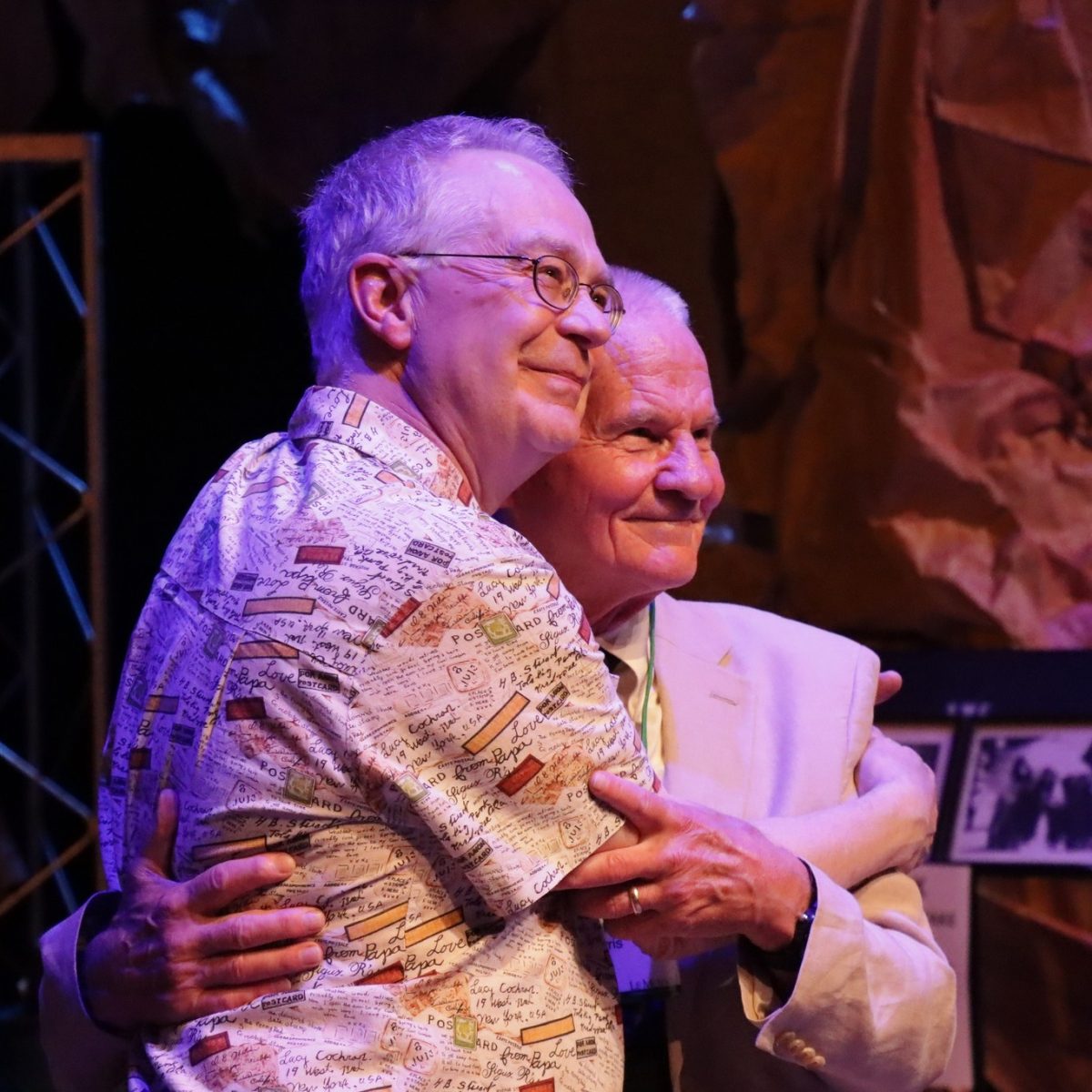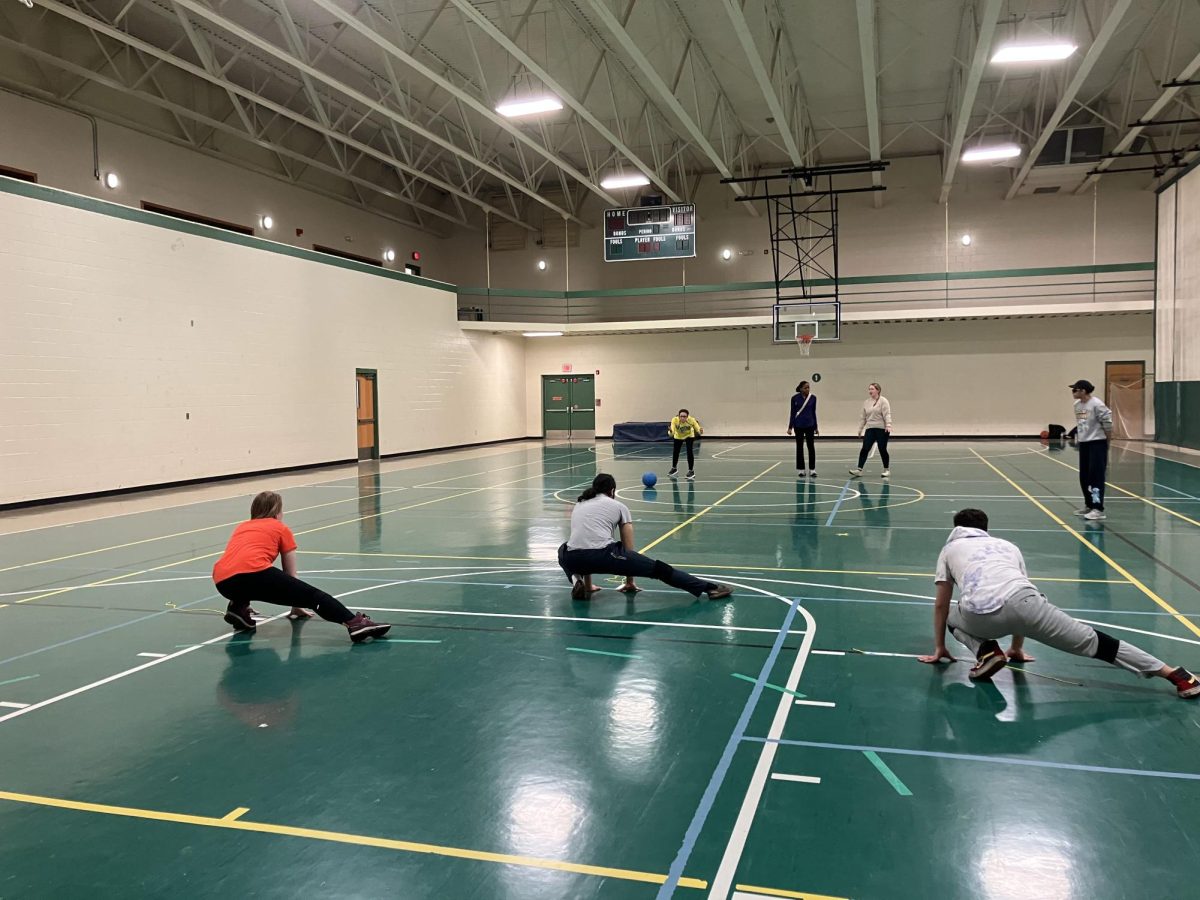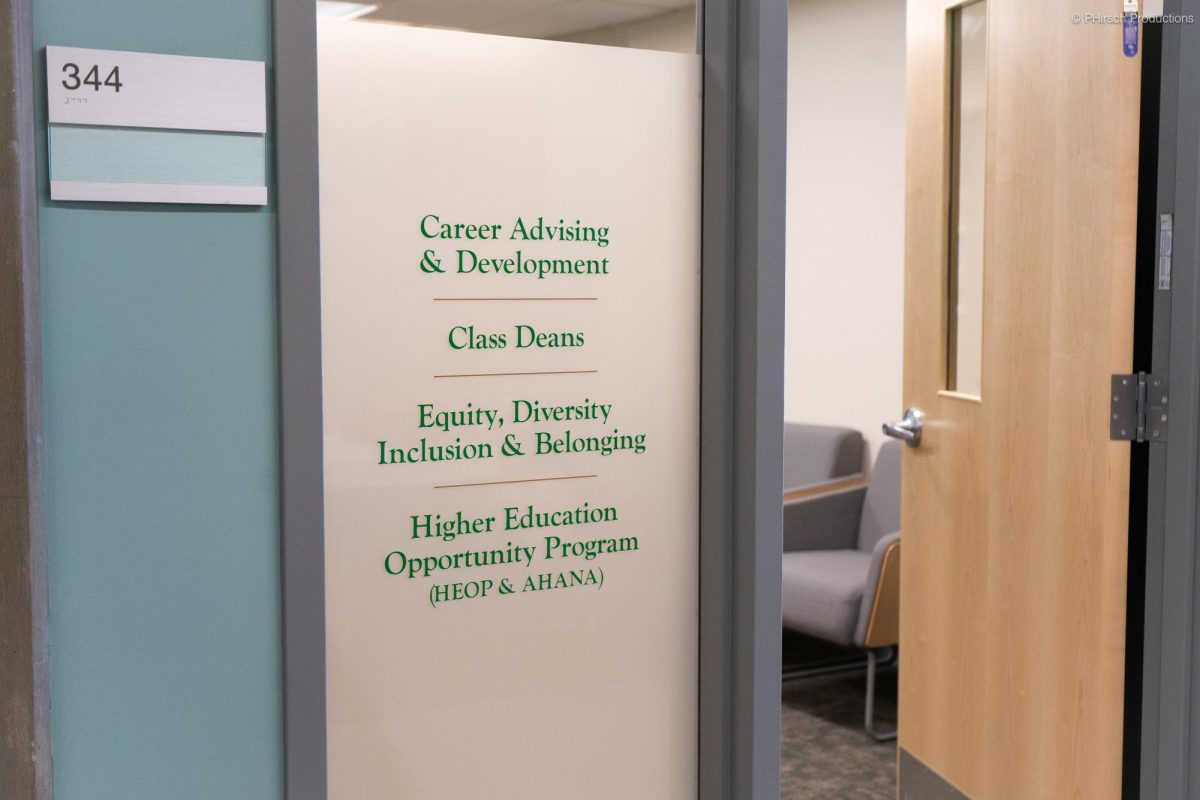Le Moyne College offers more than 100 academic majors, minors, and programs of study to its large population of undergraduate and graduate students, including a relatively new music program. What began as a small student group has grown into one of the most vibrant areas of student engagement on the campus, even offering a music minor to students across all disciplines. Despite this growth, the program has yet to offer a music major.
Originally offered as a series of clubs and ensembles, Le Moyne’s campus was filled with students involved in music. Admittedly a unique situation, the college opened music programs up to all students, which gave the opportunity to those outside an arts-base discipline to perform. Listening to student feedback, the college began to expand the campus music presence by offering a minor. While Interim Dean of the Arts and Sciences Travis Newton wasn’t at Le Moyne when the music program existed as a club in Student Development and Campus Life, he certainly played a large role in creating the program known today among students and the community.
Newton became the Interim Director of the music program in 2010, shortly after the college had centralized its new credit-bearing program to the Department of Visual and Performing Arts. That same year Ed Ruchalski, Le Moyne’s current Director of Music and Assistant Professor of Music, began working at Le Moyne as a guitar instructor, and the two were assigned with formalizing and expanding the program as it existed in the building. As Ruchalski explained, “The music program had already existed, but Travis and I were like the first real full-time people. We already had the music minor as a minor, but it wasn’t quite working. In 2010, we had four music minors, and our classes were barely filling to full enrollment.”
They were tasked with creating a structured, academic program that could help to draw students in and sustain future program growth. Newton recalls: “It was sort of like the Wild West, where you just kind of had to build it as you were going, make things up as you go.” This meant that the two had to not only revise existing courses to increase student engagement but that they had to develop completely new ones tailored to student interests. Ruchalski laughed as he explained how Le Moyne’s beloved Rock Ensemble came to exist only because students asked for it to. Since then, the program has grown to become very successful, at one point reaching up to 32 students enrolled in the music minor.
Despite the success of the minor and continuous student interest, the question remains: why doesn’t Le Moyne College offer a music major? After talking to Newton and Ruchalski, the reasons appear to be mainly financial and logistical. For one, the college doesn’t have the facilities to support a larger music program than what it currently offers. The program is currently housed in the W. Carroll Coyne Center for the Performing Arts, along with the college’s theater, dance, visual arts, and arts administration programs, which doesn’t leave the necessary space required for a music major.
“We have three practice rooms for people to not only give lessons, but students to rehearse and practice,” said Ruchalski. “When I went to music school, we had a building that had endless rows of practice rooms on three or four floors. You can’t just have classrooms.” Newton wholeheartedly agreed with this statement, stating, “I think one of the biggest challenges is that if you’re going to have a music major, you need space facility, which costs money, right, a lot of money, because it’s not just any old space, there got to be a number acoustically treated spaces.”
In addition to the spatial limitations, there are significant financial burdens that would come with the major. While the college would need to cover the costs of providing performance and practice venues, they must also consider the cost of all necessary equipment and faculty required to support the major. Newton explained, “We would need to do some development in terms of space and equipment, people, money; the three types of resources that you need to do anything.”
Another important factor would be Le Moyne’s proximity to other institutions with already well-established music programs. Being surrounded by institutions like Cornell University in Ithaca, the Eastman School of Music in Rochester, and Syracuse University can make it difficult for Le Moyne to establish a name for itself when it comes to offering a music major.
When asked the same question, many of Le Moyne’s current music minors echoed the faculty responses and reasoning, while others viewed the lack of a major as being more directly the college’s fault. Senior Aidan Thompson agreed that the spatial and financial limitations of the Performing Arts Center had a large impact. He argued that “to accommodate music majors, the school would need to have more working practice rooms, especially considering that music lessons happen in those same practice rooms. Le Moyne would seriously need to raise money to expand the Performing Arts Center to include rehearsal spaces and more music locations, which would be very hard to get.” Thompson also repeated the sentiment that potential music majors are more likely to attend a school that already has the foundations for music and the ability to offer highly specialized courses like music education, music business, and music therapy.
While Senior Christianna Kosta also believed limited space was holding the college back, she didn’t agree that the cost of the major was preventing the college from offering it. “I think they don’t see the PAC as a vital piece of Le Moyne,” Kosta stated. “We had the space for a growing Arts Department and they chose the coffee shop instead. It felt like a punch in the gut when we could have expanded and included more space for people that look for a place of belonging, but they chose profit instead.”
Another student blamed administrative assumptions that students wouldn’t be interested in the major as a reason for the college not offering it. They said that if that fact were to change and the college began advertising the major they believed it could become one of the most popular among students.
When asked whether or not they believed the college should offer a music major answers from the faculty became much more passionate. “I mean, classes started every morning at 8 a.m. and I was done by 6 p.m. Monday through Friday. You’re like a dog, so you got to be into it,” said Ruchalski once again recalling his days in school. “That’s the thing. And I see that here, the nursing program is really rigorous. You know, there’s a lot of other programs that are really hard programs, so we’re capable of doing that here.”
Newton expressed hope at the thought of the program’s growth but was much more hesitant. Relating it to the AACSB accreditation of the Madden College of Business, he explained that institutions offering music majors must become members of the National Association of Schools of Music (NASM). While NASM accreditation may not be an official requirement for the major, Newton placed those with the esteemed accreditation in regard.
Although the college’s music program has grown significantly, combinations of strategic considerations and practical limitations offer reasons as to why the college doesn’t offer the major. As history has proven, if campus interest in a music major continues to build momentum both faculty and students alike are hopeful that a major could soon follow.









